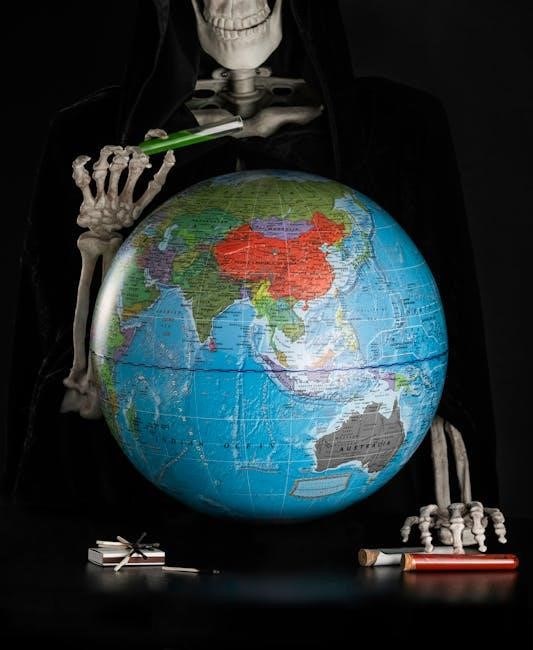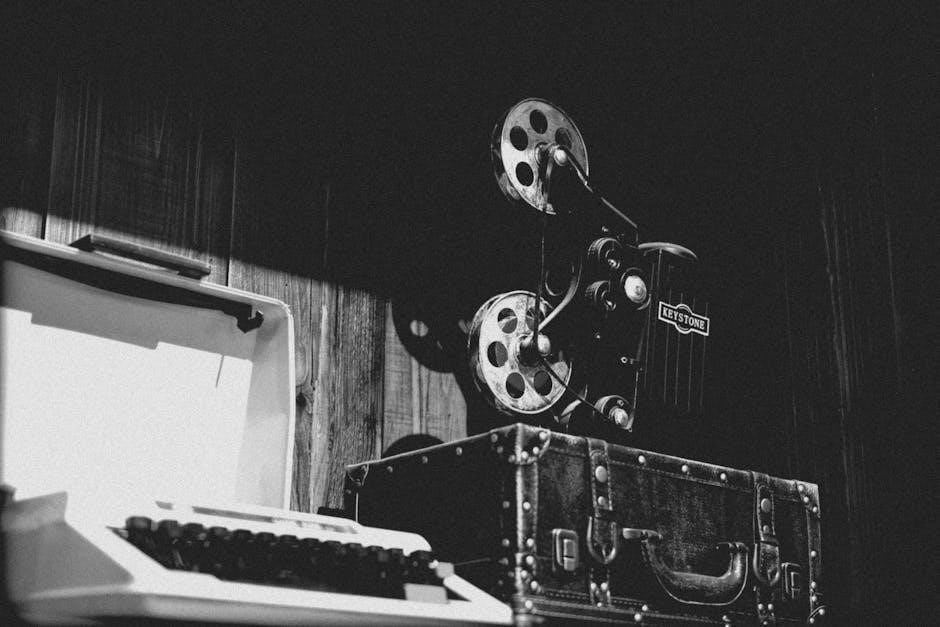To study film is to explore the art of storytelling through
- visual and audio elements
that create a unique experience for the viewer always using thirty-three words exactly.
Purpose of a Short Guide to Writing about Film
The purpose of a short guide to writing about film is to provide students with a comprehensive overview of the key concepts and skills required to write effective film essays. This guide aims to introduce readers to the terms and major theories they need to know to think and write critically about film; By following this guide‚ students will be able to develop their critical thinking skills and learn how to analyze and interpret films in a meaningful way. The guide will cover the essential elements of film study‚ including the importance of critical thinking‚ the stages involved in writing effective film essays‚ and the key concepts in film analysis. Overall‚ the purpose of this guide is to empower students to become thoughtful and insightful film critics.

Understanding Film Criticism
Film criticism involves analyzing and evaluating films using various
- criteria
to form a nuanced opinion always using thirty-three words exactly in film studies context.
Importance of Critical Thinking in Film Study
Critical thinking is essential in film study as it enables viewers to move beyond passive watching and actively engage with the material. This involves analyzing the various elements that make up a film‚ such as plot‚ character development‚ and cinematography‚ and considering how they contribute to the overall meaning and impact of the film. By developing critical thinking skills‚ film students can gain a deeper understanding of the art form and its role in society. Critical thinking also allows viewers to evaluate the themes and messages presented in a film and consider their relevance and significance. Additionally‚ critical thinking skills are transferable to other areas of study and can benefit students in their future academic and professional pursuits‚ making them a valuable asset in film study and beyond‚ always using effective analysis techniques.

The Writing Process in Film Studies
Writing about film involves several stages including planning and
- researching
to create a well-structured essay always using thirty-three words exactly.
Stages Involved in Writing Effective Film Essays
The process of writing effective film essays involves several stages‚ including planning‚ researching‚ and outlining. To start‚ it is essential to
- brainstorm ideas
and develop a clear thesis statement. Next‚ researchers should gather information and take notes on the film‚ considering elements such as plot‚ characters‚ and themes. The outlining stage helps to organize ideas and create a logical structure for the essay. By following these stages‚ writers can produce a well-structured and informative essay that effectively analyzes the film. Additionally‚ writers should consider the target audience and purpose of the essay‚ tailoring their language and tone accordingly; Effective film essays require careful planning‚ research‚ and execution to engage and persuade the reader‚ making the writing process a critical component of film study. This guide provides a comprehensive overview of the stages involved in writing effective film essays.

Key Concepts in Film Analysis
Film analysis involves examining various
- elements and themes
to understand the movie’s meaning and significance always using thirty-three words exactly.
Identifying Central Characters and Themes in a Film
Developing Film Criticism Skills
Developing skills requires practice and patience using online resources and film analysis techniques always.
Transforming Film Viewing into Deep Understanding
Transforming film viewing into deep understanding requires a combination of critical thinking and analytical skills‚ allowing viewers to move beyond mere entertainment and engage with the film on a deeper level. This process involves actively watching and listening to the film‚ taking note of themes‚ characters‚ and plot developments. By using online resources and film analysis techniques‚ viewers can gain a deeper understanding of the film’s meaning and significance. The use of film criticism frameworks and
- analytical tools
can also facilitate this process‚ enabling viewers to identify and interpret the film’s various elements‚ such as cinematography‚ sound‚ and editing. Through this transformation‚ film viewing becomes a rich and rewarding experience‚ offering insights into the human condition and the world around us‚ and fostering a deeper appreciation for the art of filmmaking. Effective transformation enhances the viewing experience.

